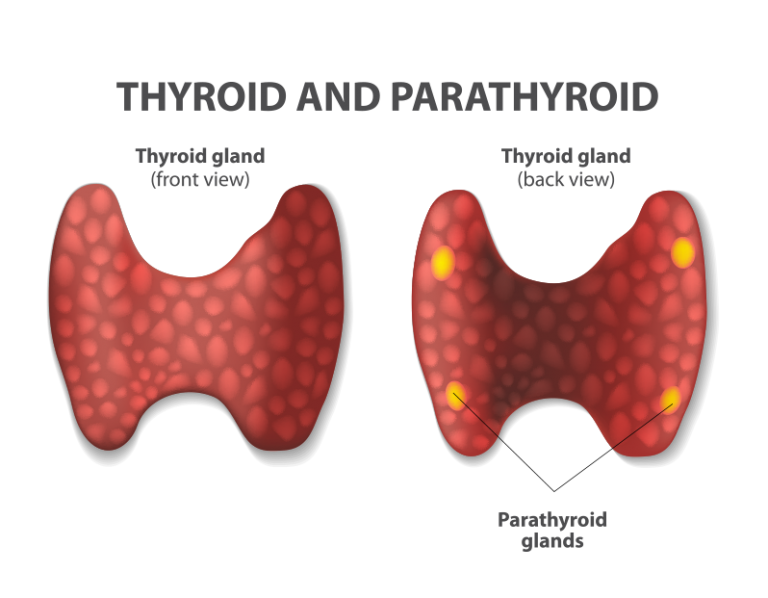PARATHYROID CARE
Typically, four parathyroid glands sit in close contact with the thyroid gland. They are responsible for controlling calcium metabolism.
Hyperparathyroidism is a common disorder in which a benign tumor of one or more of the parathyroid glands causes excessive levels of parathyroid hormone (PTH). This typically results in elevation of blood and urine calcium levels. This disorder can be asymptomatic or cause classic symptoms of excessive thirst, excessive urination, dehydration, abdominal pain, constipation, and mood disorders such as depression.
Treatment depends on the circumstances but may include conservative watchful waiting, surgical excision of the overactive gland(s), and sometimes medication. If the patient is asymptomatic, then considerations that are useful in determining whether surgery will be the preferred treatment include (1) the age of the patient, (2) the degree of elevation of the blood calcium level, (3) the patient’s kidney health, and (4) the patient’s bone health.
Cancer of the parathyroid gland is extremely rare.

